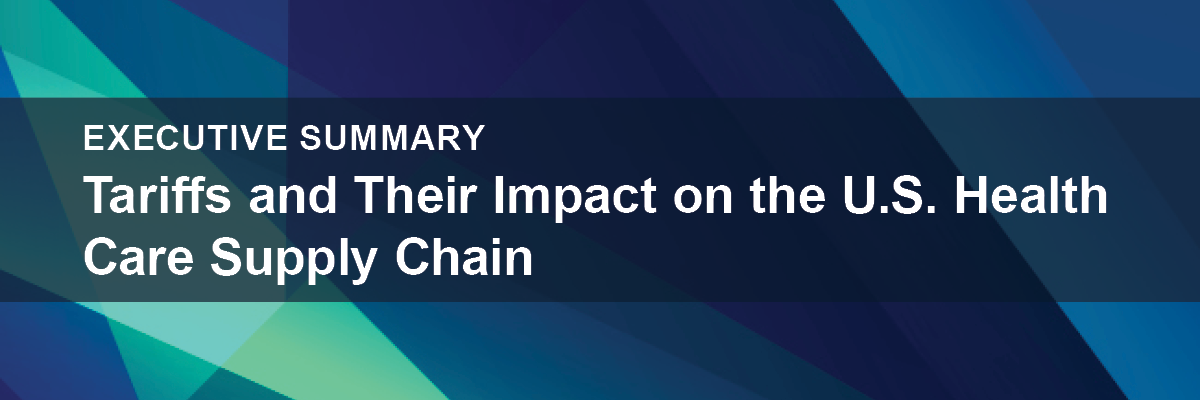
Executive Summary: Tariffs and Their Impact on the U.S. Health Care Supply Chain
The U.S. health care system relies heavily on a global supply chain for pharmaceuticals and medical devices. A significant portion of active pharmaceutical ingredients (APIs), especially for generic sterile injectables like chemotherapy drugs and antibiotics, are sourced from India and China. Similarly, complex medical devices often incorporate components from numerous countries. This global interdependence makes the health care sector particularly vulnerable to tariff-related disruptions.
What are the Key Challenges in Tariffs…
Rising Costs: Tariffs are expected to increase hospital expenses by at least 15% in the near term, compounding existing financial pressures from inflation and inadequate Medicare reimbursements.
Patient Risk: Disruptions in the supply chain can delay or prevent access to critical treatments, posing serious risks to patient health and safety.
Proposed Solutions
Legislative Action: The American Hospital Association (AHA) advocates for the reintroduction of the MAPS Act and the Pharmaceutical Supply Chain Risk Assessment Act to proactively assess and strengthen supply chain resilience.
Tariff Exceptions: AHA urges the continuation and expansion of tariff exemptions for essential medical products, especially those already in shortage.
Conclusion
Maintaining robust and resilient medical supply chains is essential for safeguarding patient care, controlling health care costs, and protecting national interests. The AHA remains committed to collaborative, forward-looking strategies that ensure uninterrupted access to vital medical products.

